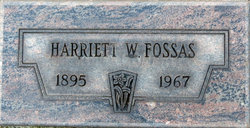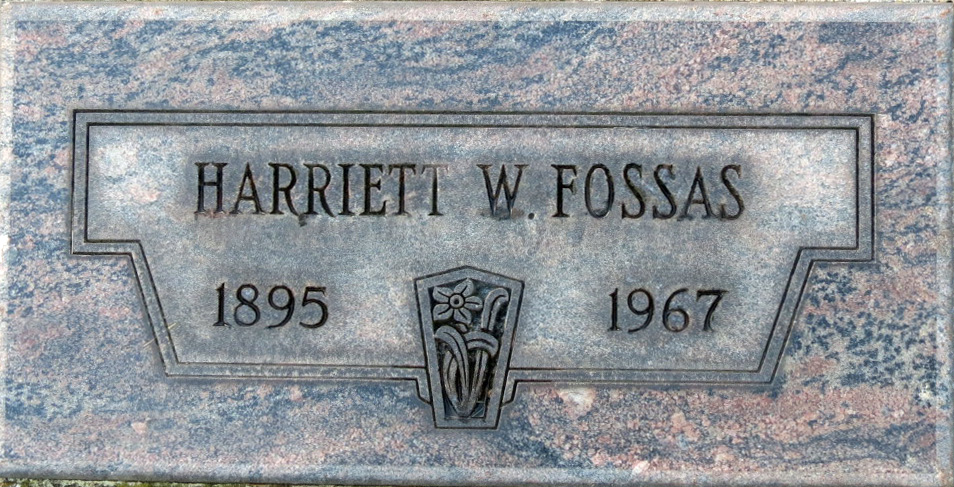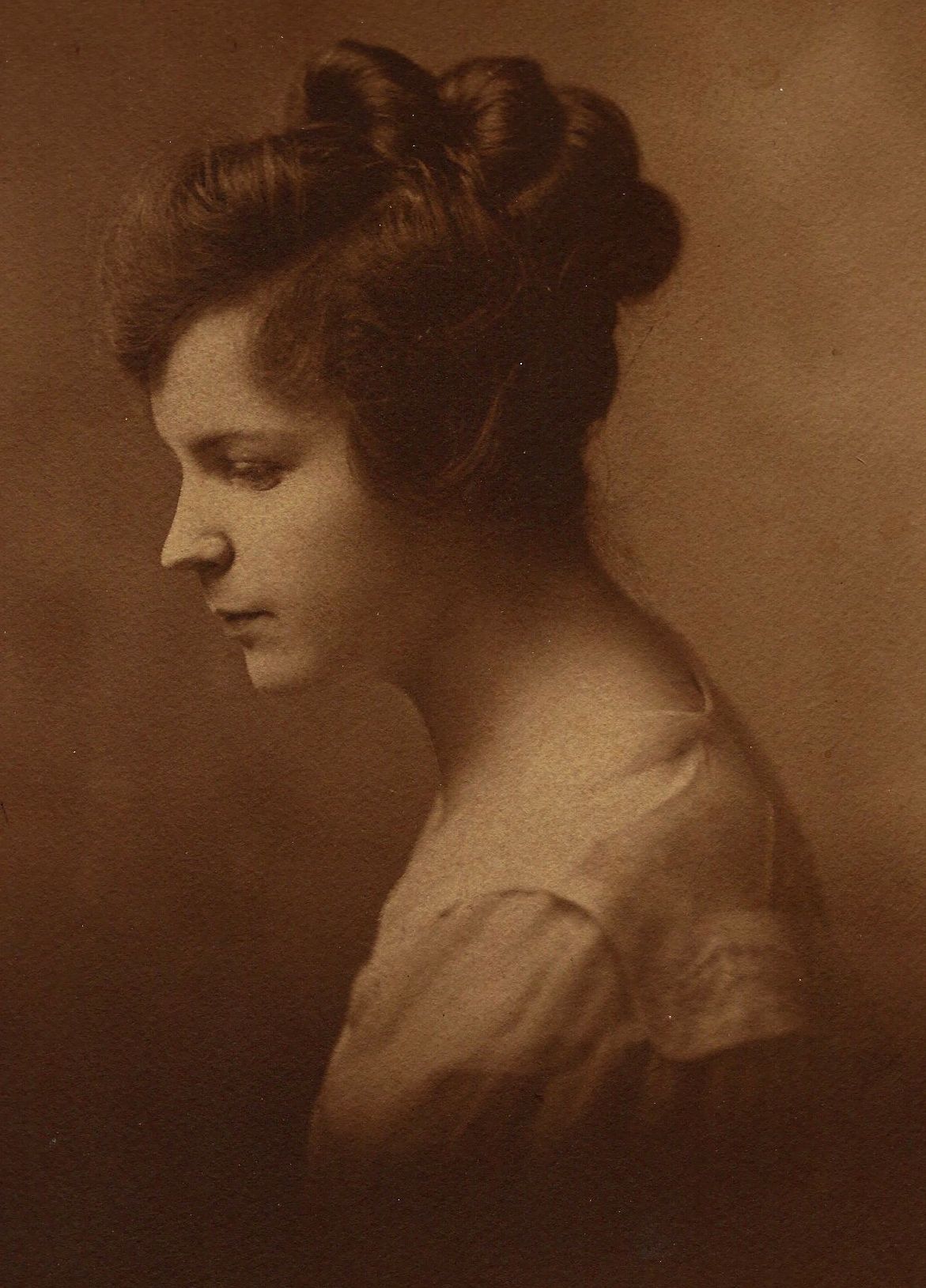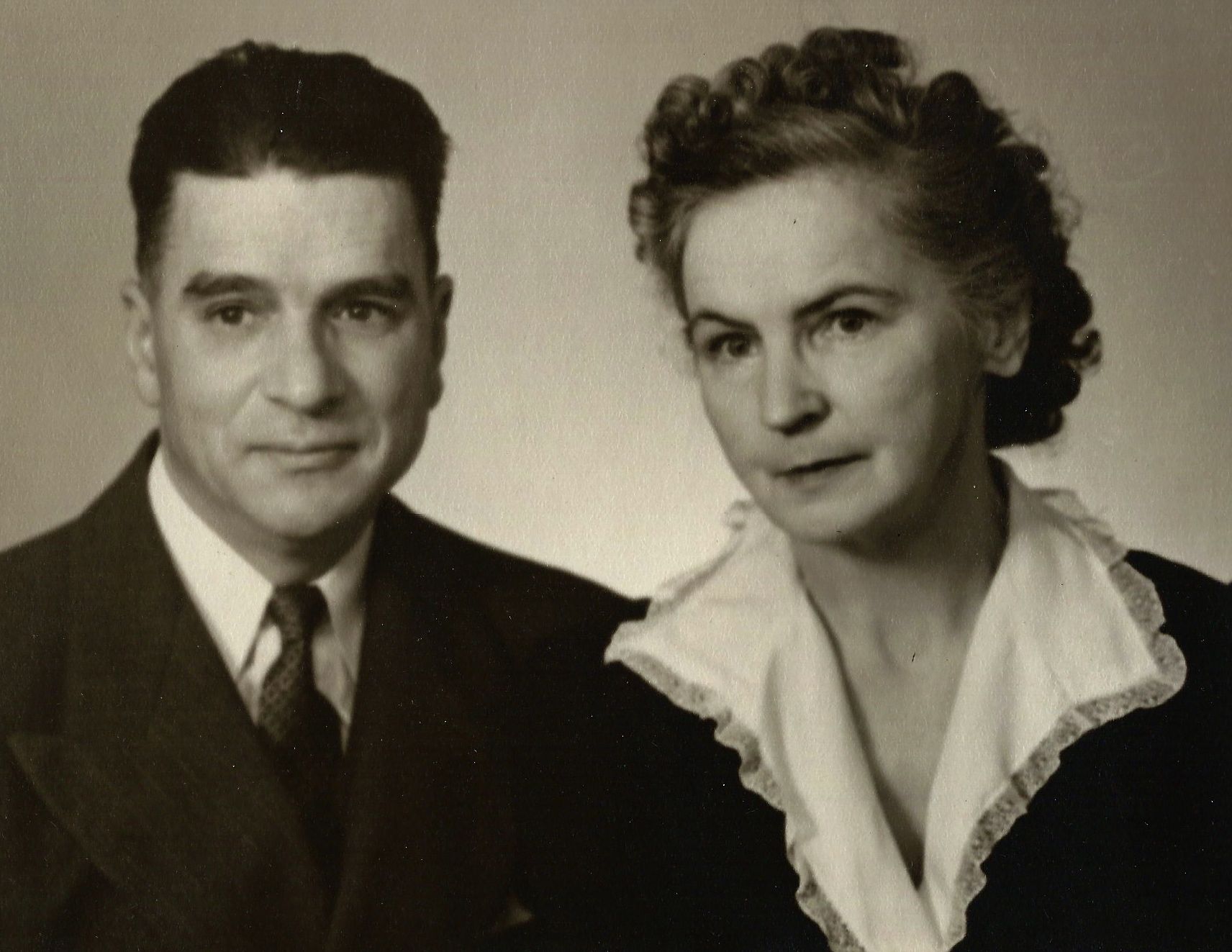Harriett's family frequently moved around in Yakima County when she was a small girl, as her father's work required that he live near the construction projects. However, eventually her parents longed for a home of their own, as well as considering it a good idea to diversify their income sources. Her father purchased a farm near Horse Shoe Bend, Yakima County, Washington. As their were no surviving boys in the family, Harriet and her older sister, as well as their mother, worked on the farm and Harriet's duties included care of the hogs. In spite of heavy, often distasteful chores, it was a time of her life that Harriett looked back upon as some of her happiest years. An athletic and independent young woman, she enjoyed a freedom she didn't have during years of living in towns and building projects. She especially loved riding her strawberry roan through the sagebrush country.
Public school in Harriett's community offered only an eighth grade education, which Harriett completed. However, Harriett had a strong thirst for knowledge and a keen native intelligence. She read voraciously for the rest of her life and expanded her basic education to include in-depth knowledge of many fields that she never had the opportunity to study in school. She was especially interested in history, current events, botany and birds.
When she was 19 years old, Harriett fell in love with George Barrilero Fossas, Her father strongly disapproved of the marriage because George was a Roman Catholic and Spanish. The couple eloped to Tacoma, Washington where they married at the courthouse on October 8, 1914. Despite her father's concerns, the marriage stayed strong until Harriett's death more than 53 years later.
The young couple settled in Seattle, Washington where Harriett's older sister lived with her husband. George joined the US Navy when the country entered World War I. Harriett and George had a son born Jan 16 1916, but lived only 10 days. The death of their first child was an intense emotional blow and Harriett's health at the time was poor anyway. She suffered from severe asthma and her doctor recommended that they return to the drier climate of eastern Washington for her health.
They settled in Wapato, near Yakima, Washington, while George continued to serve tours of sea duty with the Navy. While in Wapato, their second child was born prematurely at home during a December 4,1920 snowstorm. This little daughter would probably not have survived either except for the quick thinking of a nurse who made sure the family's wood stove was just the right temperature to serve as a make-shift incubator and popped the baby in the oven! As it turned out, baby Georgiana was the only child of Harriett and George and, as such, was much loved and doted upon.
It was imperative that the little family return to Seattle so that George could pursue his chosen field, that of an electrician. Harriett liked life as a young woman in the city. Her two sisters and their husbands and children lived in Seattle. She had access to large libraries. She enjoyed social gatherings which included her favorite card games that challenged her mental abilities--especially bridge and pinochle. She was able to enjoy movies, popular music, dancing and other fun that had been forbidden by her conservative father. George's increasing success at his career enabled her to choose pretty clothes and other luxuries that her family could not afford as she grew up and she had a nice home of her own. She supported her daughter Georgiana in many creative activities, such as various forms of dancing, dramatics and elocution. Particularly she made exquisite costumes for the dance and drama productions--all sewn by hand. Later, Harriett appreciated time spent with her three grandchildren.
Harriett's physical health was never strong. She suffered a major stroke that paralyzed her entire left side. But her will power was extraordinary. Prior to the time sophisticated rehabilitation modalities were developed, Harriett regained all her functions without much assistance--except for a slight limp. This enabled her and George to fulfill some dreams of travel and other pleasures after he retired.
Harriet passed away from lung cancer on her 72nd birthday.
Harriett's family frequently moved around in Yakima County when she was a small girl, as her father's work required that he live near the construction projects. However, eventually her parents longed for a home of their own, as well as considering it a good idea to diversify their income sources. Her father purchased a farm near Horse Shoe Bend, Yakima County, Washington. As their were no surviving boys in the family, Harriet and her older sister, as well as their mother, worked on the farm and Harriet's duties included care of the hogs. In spite of heavy, often distasteful chores, it was a time of her life that Harriett looked back upon as some of her happiest years. An athletic and independent young woman, she enjoyed a freedom she didn't have during years of living in towns and building projects. She especially loved riding her strawberry roan through the sagebrush country.
Public school in Harriett's community offered only an eighth grade education, which Harriett completed. However, Harriett had a strong thirst for knowledge and a keen native intelligence. She read voraciously for the rest of her life and expanded her basic education to include in-depth knowledge of many fields that she never had the opportunity to study in school. She was especially interested in history, current events, botany and birds.
When she was 19 years old, Harriett fell in love with George Barrilero Fossas, Her father strongly disapproved of the marriage because George was a Roman Catholic and Spanish. The couple eloped to Tacoma, Washington where they married at the courthouse on October 8, 1914. Despite her father's concerns, the marriage stayed strong until Harriett's death more than 53 years later.
The young couple settled in Seattle, Washington where Harriett's older sister lived with her husband. George joined the US Navy when the country entered World War I. Harriett and George had a son born Jan 16 1916, but lived only 10 days. The death of their first child was an intense emotional blow and Harriett's health at the time was poor anyway. She suffered from severe asthma and her doctor recommended that they return to the drier climate of eastern Washington for her health.
They settled in Wapato, near Yakima, Washington, while George continued to serve tours of sea duty with the Navy. While in Wapato, their second child was born prematurely at home during a December 4,1920 snowstorm. This little daughter would probably not have survived either except for the quick thinking of a nurse who made sure the family's wood stove was just the right temperature to serve as a make-shift incubator and popped the baby in the oven! As it turned out, baby Georgiana was the only child of Harriett and George and, as such, was much loved and doted upon.
It was imperative that the little family return to Seattle so that George could pursue his chosen field, that of an electrician. Harriett liked life as a young woman in the city. Her two sisters and their husbands and children lived in Seattle. She had access to large libraries. She enjoyed social gatherings which included her favorite card games that challenged her mental abilities--especially bridge and pinochle. She was able to enjoy movies, popular music, dancing and other fun that had been forbidden by her conservative father. George's increasing success at his career enabled her to choose pretty clothes and other luxuries that her family could not afford as she grew up and she had a nice home of her own. She supported her daughter Georgiana in many creative activities, such as various forms of dancing, dramatics and elocution. Particularly she made exquisite costumes for the dance and drama productions--all sewn by hand. Later, Harriett appreciated time spent with her three grandchildren.
Harriett's physical health was never strong. She suffered a major stroke that paralyzed her entire left side. But her will power was extraordinary. Prior to the time sophisticated rehabilitation modalities were developed, Harriett regained all her functions without much assistance--except for a slight limp. This enabled her and George to fulfill some dreams of travel and other pleasures after he retired.
Harriet passed away from lung cancer on her 72nd birthday.
Family Members
Sponsored by Ancestry
Advertisement
Advertisement










